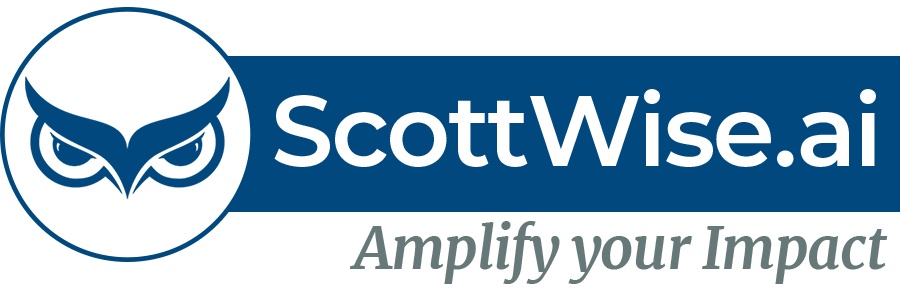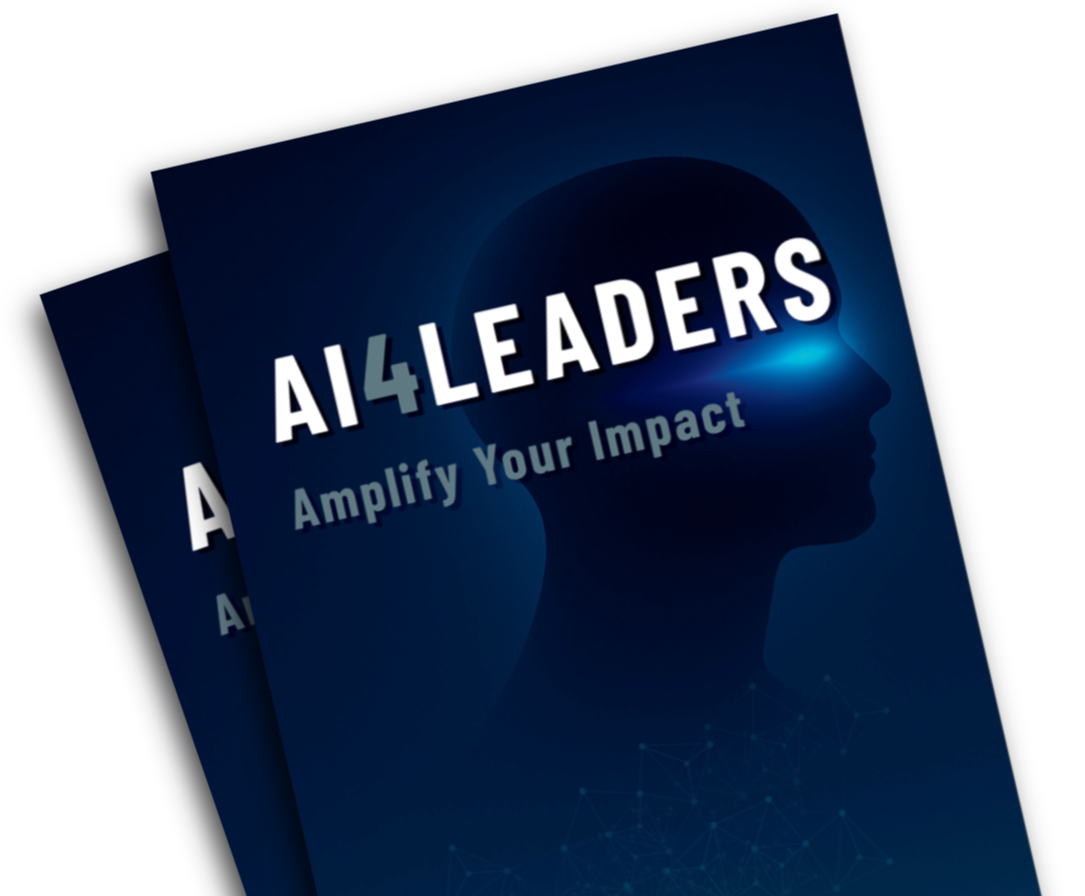AI is not Digital Transformation - it's Decision Transformation
May 18, 2025
Uncomfortable Truth: Most CFOs are treating AI like another digital project — when it’s really a redefinition of how decisions get made, who makes them, and what makes them valuable.
AI is sweeping through the enterprise like a technological tidal wave. But while the algorithms get smarter, and the headlines get louder, one thing has become clear: we’re still thinking about AI the wrong way.
Most finance leaders are slotting AI into the same mental category as past “digital transformation” efforts — ERP upgrades, cloud migrations, dashboard deployments, RPA rollouts. Familiar territory.
But that framing is failing us.
Because AI isn’t just a new digital layer. It’s a new cognitive layer. And that means its impact isn’t about speed or scale, it’s about how decisions are made.
It is time we call AI what it really is: Not digital transformation - but decision transformation
Why the Digital Transformation Playbook Doesn’t Fit
Let's be honest: the digital transformation playbook is wearing thin.It’s predictable. It’s process-centric. It’s platform-driven. And too often, it’s incremental - focused on streamlining the way we work, rather than redefining it.
That’s fine for traditional IT modernization. But AI changes the game entirely.
- AI doesn’t just optimize a process - it questions whether the process should exist.
- AI doesn’t just automate a workflow - it takes on parts of the thinking traditionally reserved for humans.
- AI doesn’t just push insights to dashboards - it pulls decisions forward by interpreting, simulating, and recommending.
That’s not digital. That’s cognitive. And that means we’re not transforming systems. We’re transforming how the organization thinks.
The Shift: From Process Efficiency to Decision Intelligence
Let's break this idea down further.
Digital Transformation has traditionally focused on:
- Automating workflows
- Reducing costs
- Digitizing documents
- Centralizing data
- Enhancing user experience
Decision Transformation, on the other hand, is about:
- Restructuring decision rights
- Reframing the role of human judgment
- Embedding intelligence directly into the decision loop
- Scaling foresight, not just speed of hindsight
- Reallocating trust - from hierarchy to systems of intelligence
This is a far more disruptive (and more powerful) shift.
Because at the heart of every business problem is a decision. Not a workflow. Not a dashboard. A choice that impacts performance, growth, and risk.
AI’s greatest contribution won’t be in how it executes tasks. It will be in how it helps us choose better, faster, smarter, and with greater foresight.
The CFO's Mandate in the Age of Decision Transformation.
For CFOs, this shift has massive implications.
The Finance function is already the control tower of performance. We traffic in forecasts, allocations, prioritizations, tradeoffs. In other words: decisions.
So we don’t just have the opportunity to lead decision transformation - we have the obligation. Here’s how:
Move Beyond Dashboards to Decision Agents
Most finance teams still deliver static dashboards or KPI packs. But the future lies in building decision agents: AI tools that don’t just report metrics — they interpret signals, simulate what-if scenarios, and recommend actions in natural language.
Imagine your profitability analytics platform doesn’t just show a margin dip — it tells you why, simulates potential responses, and suggests the optimal investment shift. That’s a decision transformation outcome.
Shift from Accuracy to Adaptability
In digital transformation, success is often defined by system accuracy and uptime.
In decision transformation, success is defined by resilience and adaptability. How quickly can we adapt our forecast to real-time shifts? How dynamically can we reallocate capital based on leading indicators?
AI thrives in volatility - if we design our systems to learn, not just report.
Reframe Governance Around Decisions, Not Data
Digital projects obsess over data hygiene and master data. While important, decision transformation raises a deeper question:
Who has the right to decide — and what role does AI play in that authority?
CFOs must help redefine decision rights:
- Which decisions are human-led?
- Which are AI-augmented?
- Which are AI-led with human oversight?
This is about more than compliance. It’s about clarity in how the business scales intelligence across teams.
Three Types of Decisions AI Is Transforming Right Now
- Operational Decisions
AI is already outperforming humans in complex classification, routing, and prioritization tasks - think AR collections targeting, fraud risk flags, or cost center anomaly detection. - Analytical Decisions
Instead of humans querying BI tools, AI now asks better questions on our behalf. LLMs can draft variance explanations, correlate drivers, and guide deeper exploration. - Strategic Decisions
This is where it gets powerful. Scenario models powered by Gen AI can run hundreds of business simulations in seconds, helping leadership teams weigh future states and navigate uncertainty more proactively.
The future finance team doesn’t just analyze “what happened.”
They become the architect of “what happens next.”
Why So Many AI Strategies Are Failing: The Wrong Anchor
If your AI strategy is anchored in IT…
If it’s owned by tech…
If it’s driven by platform selection instead of decision prioritization...
…it will underwhelm.
We must re-anchor AI strategy in the decisions that matter most to performance:
- Where is capital best deployed?
- Which customers or segments are profitable next quarter, not just last?
- What levers most influence forecast accuracy?
- Which actions carry the highest risk-adjusted return?
These are CFO-grade questions. And they deserve CFO-driven AI strategies.
Leading Decision Transformation: A CFO’s Roadmap
Here’s how you begin:
- Map Your Decision Landscape
Audit the most critical decisions in your org: Who makes them? How often? What data supports them? Where is judgment applied? Where is insight delayed? - Identify Friction and Fog
Look for decisions that are slow, siloed, politically charged, or heavily reliant on gut feel. These are ideal candidates for AI augmentation. - Prototype AI-Augmented Decisions
Don’t start with tech. Start with the decision. Then build small, high-leverage AI prototypes that add speed, foresight, or confidence. - Redesign Roles, Not Just Tools
Decision transformation means some teams will shift from doing the analysis to designing how it gets done. Upskill your talent to be system architects, scenario designers, and simulation leaders. - Govern by Decision Tier
Tier your decisions by criticality.
Tier 1: AI-assisted, human-owned
Tier 2: AI-recommended, human-approved
Tier 3: AI-led, exception-monitored
This is how you scale intelligence with control - not chaos.
AI Will Not Change the Business Until It Changes the Way We Decide
You can’t unlock new value with old mental models.
You can’t lead the future of finance with yesterday’s workflows.
You can’t pilot your way to transformation.
AI is not just a set of tools. It’s a new operating model for decisions.
If we embrace that shift - from digital transformation to decision transformation, then finance doesn’t just support the business - they orchestrate it.



